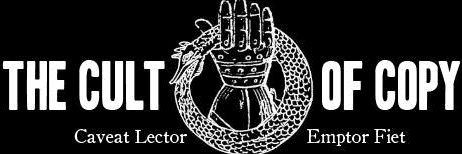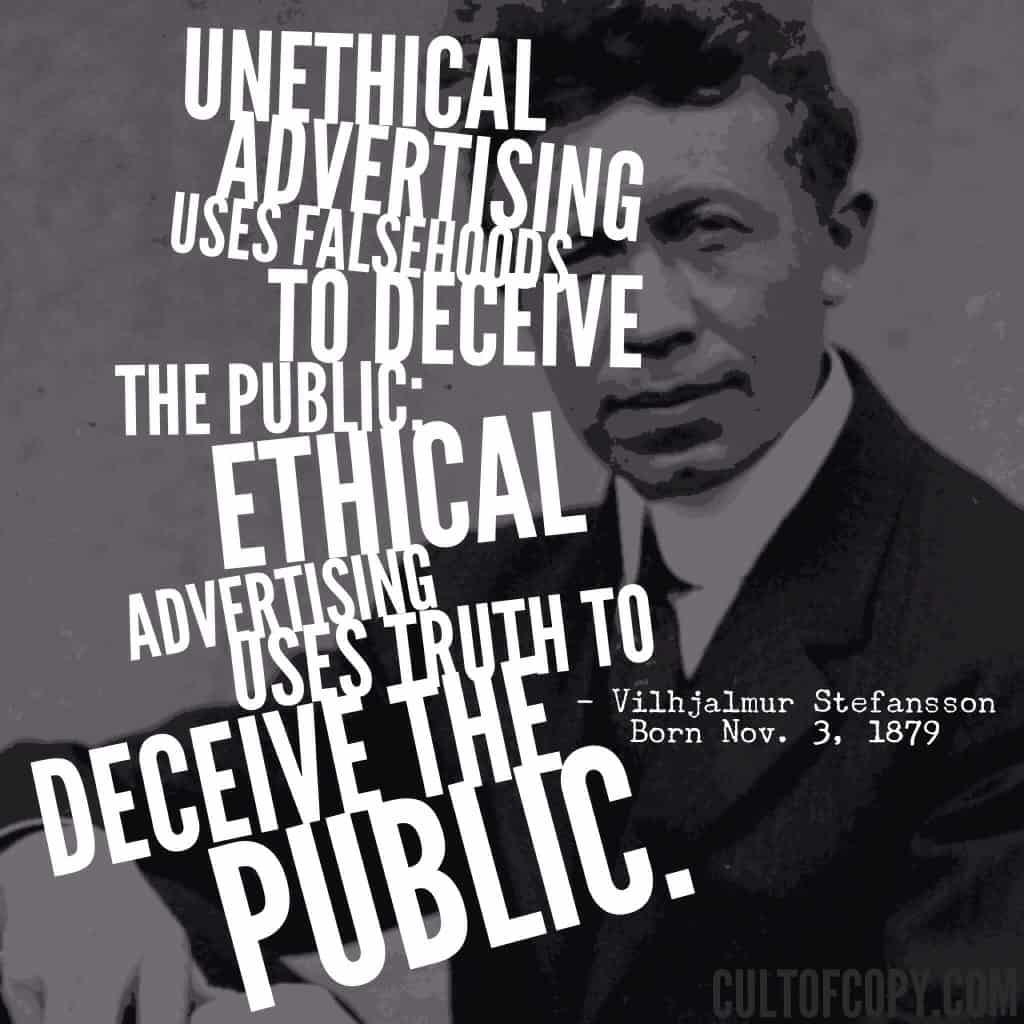“What is the difference between unethical and ethical advertising? Unethical advertising uses falsehoods to deceive the public; ethical advertising uses truth to deceive the public.” – Vilhjalmur Stefansson, Born, Nov. 3 1879.
The first thing that we need to get out of the way to have this discussion today is the mistaken notion that “deception” is always bad. It isn’t. This is a lie you were told as a child by adults who wished to more easily control you.
From stage magic, to acting, to Santa Claus, to “no, you don’t look fat in that, dear” – there are many kinds of perfectly acceptable lies that we all tell each other and are delighted by.
This is the kind of deception GOOD advertising uses. We manipulate people's perceptions and emotions in order to engineer their decision in our favor. The FACT is that they almost never NEED to buy whatever we are selling, but we coerce them into believing they do.
But the ETHICS come in when we look at why – is it to give them a good product or service they will like and enjoy the benefits of? Do we leave them better than before? If so, great!
And now let’s look at HOW we use TRUTH to deceive in an ethical (and effective) advertisement.
My favorite way is to use testimonials. Testimonials operate off the logical fallacy that another person’s experience will predict our own. Logic says it doesn’t, but we are HEAVILY influenced by anecdotes. The smart marketer knows this. And we deliberately leverage this “secret” to our advantage.
Next are price justification tricks. Having a large number stand alone is bad. Seems expensive. But we create comparisons to things that cost more, so that our chosen option appears to be a savings by comparison. We aren’t going to show them all the ways they can solve their problem WITHOUT buying our solution – not without making them seem worse.
Finally, let’s talk about manufactured limitations. Creating a short stock situation, or an arbitrary deadline – instituting things like a price bump, or a bonus take-away – all to create a sense of urgency that is “real” but also artificial. Often, these limitations aren’t necessary for the supplier, they are just implemented to drive action.
There are a lot more ways we knowingly manipulate the prospect’s EMOTIONS without their knowledge or consent. But we do not LIE outright. We manipulate the truth. Arranging it, selectively showing some and leaving out others.
But the ETHICS come in when you consider intent. Are we selling good products? Do they do what we promise? Are our customers happy? Do we refund them if they aren’t? If yes, and our solutions actually HELP people solve their problems, we have a duty to persuade, influence and CONVINCE THEM TO BUY.
No one ever said “I love this and it helped me, but I wish you hadn’t sold me so hard.”

